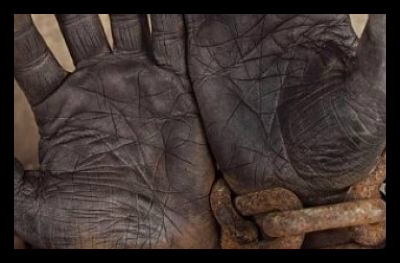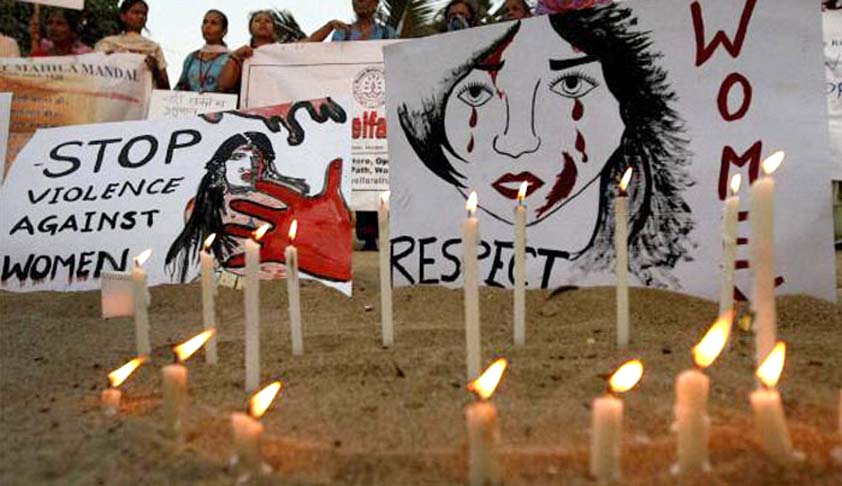Important Economic Terms & Definitions
Absolute advantage: A principle that refers to the ability of an individual/firm or a country to produce more quantity of products/goods/services than their competitors, using the same amount of resources.
Adam Smith: A Scottish Economist, author and a moral philosopher. Best known for his works: An Inquiry into the nature & causes of the wealth of nations in 1776 and the theory of moral sentiments in 1959.
Average revenue: Refers to the revenue received for selling a good per unit of output sold. This is found by dividing the total revenue by quantity sold.
Accounting profit: A company’s total earnings which includes explicit costs of doing business, such as taxes, depreciation, expenses, etc. It is the total revenue minus the explicit cost.
Average tax rate: Tax rate that is paid when all sources of taxable income is added and divided by number of taxes owed.
Average total cost: Total cost per unit including fixed and variable costs, found by dividing total cost by the quantity of output.
Average fixed cost: Per unit output of fixed costs, found by dividing fixed cost of production by quantity produced (output).
Average variable cost: Variable costs divided by number of units produced.
Business cycle: Economy-wide fluctuations in economic activities such as, production, trade, employment, etc.
Budget surplus: Excess of receipts or income over expenditure or outlays.
Budget deficit: A financial health indicator where expenditures exceed revenue.
Circular flow diagram: Basic visual model used in Economics to show how Economy functions (flow of money through firms, markets, etc.)
Comparative advantage:a law referring to ability of an economic actor to produce goods & services at lower opportunity cost than others.
Complements: Goods or services used in conjunction to other goods or services. A complementary good or service has no value when consumed alone, but value is added when it is combined with another good or service.
Cross price elasticity of demand:Measures responsiveness of quantity demanded for a good to a change in price of another good.
Cost:Combination of losses & gains that have value attached to them by an individual. The value of everything a seller must give up producing a good.
Consumer surplus:Difference between what consumers are willing (and able) to pay for a service/good relative to its market price, and what they actually spend on the service/good.
Coase theorem: An economic theory which affirms that where there are competitive markets without any transaction costs, an efficient set of inputs & outputs, to & from production-optimal distribution are selected, regardless of how property rights are divided. When there is involvement of property rights, people involved will naturally gravitate toward the most beneficial and efficient outcome.
Constant returns to scale:Constant ratio between inputs and outputs. Occurs when increase in number of inputs leads to equivalent increase in output.
Competitive market: Market where large number of producers compete with each other to satisfy needs of large number of consumers.
Collusion: Agreement between firms in market, sometimes illegal, to limit competition by deceiving, misleading or defrauding others of their legal rights. An agreement to divide markets, set prices, limit production and opportunities.
Cartel:Organization created from formal agreement between group of producers of goods or services to regulate supply to manipulate prices.
Capital: Wealth used to start a business or other meaning is, a factor of production, others being land and labor.
Diminishing marginal product: An economic principle that states: while increasing one input & keeping the other inputs at the same level may increase outputs initially, further increase in that input will have a limited effect, & eventually no effect or a negative effect on the output.
Deadweight loss: Fall in total surplus caused by market inefficiency. Can be applied to any deficiency caused by an inefficient allocation of resources.
Diseconomies of scale:Economic concept that refers to a situation in which economies of scale no longer function for a firm.
Economics:Study of how society manages its scarce resources, or a science concerned with production, distribution and consumption of goods & services.
Efficiency: A property of society in which resources are optimally allocated to serve each individual or entity in best way while minimizing waste and inefficiency.
Explicit costs: Clear cash outflow from a business that reduce its bottom-line profitability.
Equity: Value of assets minus the liabilities of the asset. Equity = Assets – Liability.
Externality: The positive or negative impact of an economic activity experienced by an unrelated bystander.
Exports: Function of international trade where goods produced domestically are shipped abroad.
Equilibrium: State in which economic forces are balanced where quantity demanded = quantity supplied.
Elasticity: Measure of variables responsiveness to change in another variable.
Economic profit:Total revenue – total cost (including implicit and explicit costs)
Efficient scale: Quantity of input that minimize the average total cost.
Economies of scale: Cost advantage that arises as quantity of output increases.
Fixed costs: Cost that doesn’t change with quantity of output produced or sold.
Free rider problem: Market failure that occurs when people who receive benefits of common resource and don’t pay their fair share of taxes.
Factors of production:Inputs used to produce goods and services to make economic profit.
Game theory: Study of human behaviour within competitive or strategic situations.
Inflation:Rate of increase in overall prices of goods and services with consequent fall in purchase power of currencies.
Interdependence:Relation between two of more entities where each is dependent on other for goods or services.
Imports: Goods that are produced abroad and sold domestically
Inferior good:Good for which demand declines with increase in income or real GDP.
Income elasticity of demand:Sensitivity of the quantity demanded for certain goods or services to change in the real income of its consumers keeping all things constant.
Import quota:A limit set on the quantity of goods that can be produced abroad & sold domestically.
Implicit costs:Cost occurred but not necessarily reported as an expense.
John Maynard Keynes:A 19th Century British Economist & Philosopher who spent his working years with East India Company, and whose radical ideas had great impact on modern political & economic theories. He’s also known as the father of Keynesian Economics.
Law of demand:An economic (micro) law, that states that, all things equal, quantity demanded of a good or service falls, when the price of the good or service increases.
Law of supply: Another microeconomic law that states, all factors being equal, quantity of supply of goods/services increases, when the price of goods/services increases.
Laffer curve:A curved graph, developed by Arthur Laffer, that illustrates the relationship between tax rates & amount of tax revenue collected by Governments.
Lump sum tax:Fixed amount of tax, regardless of change in circumstances of taxed entity.
Lorenz curve: A curve representing wealth/income inequality. Plots percentile of population according to income/wealth on x-axis and cumulative wealth/income on y-axis.
Monopoly: Industry dominated by one entity/corporation without close substitutes
Marginal product of labor: Change in amount of output from employing additional unit of labor.
Monopolistic completion: Market structure where firms sell similar products but not perfect substitutes.
Marginal cost: Change in total cost that arises from producing an extra unit
Marginal revenue:Change in total revenue resulting from sale of one additional unit of output.
Marginal product: Change in output from employing one more unit of an input.
Marginal tax rate: Extra tax paid on additional dollar of income.
Market Economy:Economic system that allocates resources through decentralized decisions of individuals and business.
Microeconomics: Study of implications of actions of individuals and how these affect distribution & utilization of resources.
Macroeconomics: Study of how economy behaves, including studying phenomena like economic growth, inflation, unemployment, etc.
Normative statements:Subjective & value-based claims that attempt to prescribe how world should be
Normal good:Goods for which, all things equal, increase in quantity demanded increases as individuals’ real income increases.
Natural monopoly:Type of monopoly that arises as result of high startup or fixed costs of operating a business in specific industry.
Nash equilibrium:concept where no player has incentive of changing their chosen strategy after considering opponents choice.
Oligopoly: Market structure where small number of firms have large majority of market share.
Opportunity cost:Benefit that must be given up to obtain something else.
Phillips curve:a curve that shows the concept that inflation & unemployment have stable & inverse relationship.
Production possibilities curve:Graph that represents alternative combination of outputs that an economy can produce by transferring resources from one service/good to another.
Positive statements:Claims that attempt to describe the world the way it is.
Price elasticity of demand: Measure of relationship between chance in price of a good and the quantity demanded of that good. Price elasticity of demand = Change in quantity demanded(%)/change in price (%).
Price elasticity of supply:Measure of relationship between chance in price of a good and the quantity supplied of that good. Price elasticity of demand = Change in quantity supplied(%)/change in price (%).
Price ceiling:Max legal price a seller is allowed to charge for a good or service.
Price floor:Minimum legal price at which a good can be sold
Producer surplus:Measure of the difference between the amount producer is willing to accept for a good and amount he receives.
Pigovian tax: Affluent fee assessed against business/individuals for engaging in a specific activity.
Private goods:Goods that must be purchased for consumption by individuals which prevents others from consuming it.
Public goods: Opposite of private goods. Products consumed by individuals without reducing availability of said product to others.
Proportional tax:An income tax system where same percentage of tax is levied from higher income tax payers & lower income tax payers.
Progressive tax:Tax that takes higher percentage from higher income tax payers than lower income tax payers.
Profit: The total revenue minus total cost
Production function: Relationship between physical inputs or factors of production and physical output of production process.
Price discrimination: Business pricing practice of selling same good at different prices to different customers.
Regressive tax:Tax where higher income taxpayers pay smaller percentage of tax than lower income tax payers.
Scarcity:Limited nature of society’s resources
Specialization: Focus on a particular area
Substitutes:Product/service consumers see as same/similar to another product. Another definition is, two goods are substitutes if increase in price of one leads to increase in demand for the other.
Surplus:Situation where quantity supplied is greater than quantity demanded
Shortage:Situation where quantity demanded is greater than quantity supplied
Supply side economics:Branch of economics that argues that the Economic growth can be created effectively by lowering the barriers on production & investing in capital.
Sunk cost:Cost already incurred/committed and cannot be recovered.
Tariff: Tax imposed on goods and services that are imported
Tax incidence:Division of burden of tax between buyers and sellers.
Total revenue: Total receipt of a firm, from sale of given quantity of service/good.
Total cost: Total economic cost of inputs used in production by a firm
Variable cost:The costs that changes in proportion to the quantity of output produced
Welfare economics: Study of how allocation of resources affects social welfare.
























